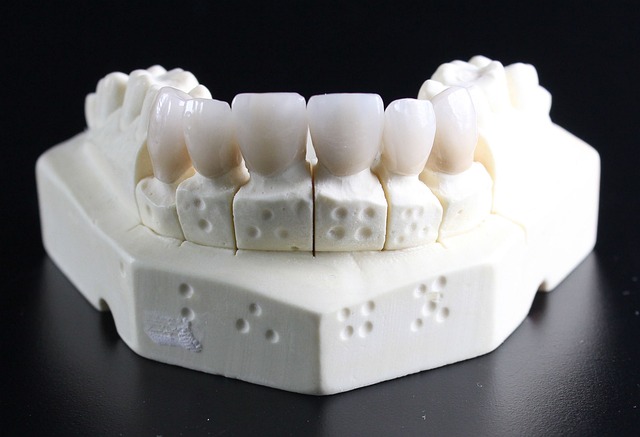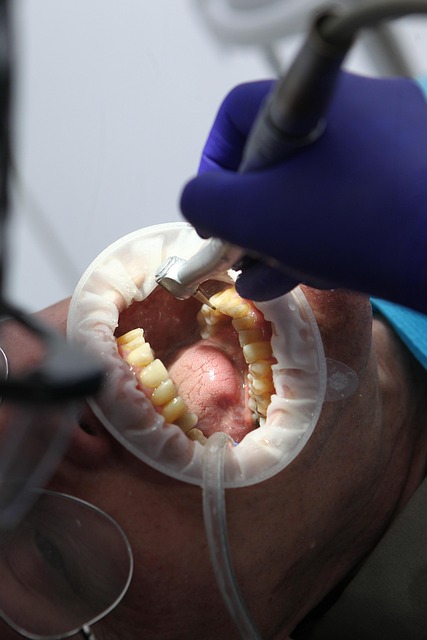Running a successful dental practice requires comprehensive insurance strategies to mitigate risks and protect assets. Key coverage areas include general liability for accidents, professional liability against malpractice claims, property insurance for damage/theft, workers' compensation, and business interruption coverage during crises. Choosing the right insurance for dental offices involves evaluating scope of coverage, network strength, and cost factors. Regular policy reviews and staying informed about industry trends are crucial to securing tailored protection against emerging risks like cyber liability.
Protecting your dental practice with comprehensive insurance is crucial for ensuring its long-term success. This guide navigates the essential aspects of dental office insurance, helping you understand your needs and make informed decisions. From identifying the right coverage types to negotiating better terms, we explore strategies to mitigate common risks. Stay updated on industry trends to secure your practice’s future, ensuring peace of mind in today’s competitive landscape of insurance for dental offices.
- Understanding Dental Practice Insurance Needs
- Types of Coverage for Dental Offices
- How to Choose the Right Dental Insurance Plan
- Common Dental Office Risks and Their Solutions
- Negotiating Better Terms for Your Practice
- Staying Updated with Industry Insurance Trends
Understanding Dental Practice Insurance Needs

Running a successful dental practice involves more than just providing top-notch care; it also means being prepared for any unforeseen circumstances. This is where comprehensive insurance for dental offices comes into play. Understanding your insurance needs is crucial to safeguarding your practice, patients, and personal assets.
Dental practices require specific coverage to mitigate risks associated with malpractice claims, property damage, liability, and even lost income. Insurance for dental offices should include general liability to cover accidents or injuries on your premises, professional liability to protect against malpractice suits, and property insurance to safeguard your building, equipment, and inventory from damages or theft. Additionally, business interruption coverage ensures you can continue operations during unforeseen events like natural disasters or equipment failures.
Types of Coverage for Dental Offices

Dental practices require a comprehensive insurance plan to safeguard against potential risks and financial losses. The types of coverage available cater to various aspects of running a successful dental office. One of the primary concerns is general liability insurance, which protects against claims of bodily injury or property damage caused by your practice. This is essential as it covers legal fees and settlements in case of accidents or incidents within your facility.
Additionally, dental offices should invest in professional liability insurance to safeguard against malpractice suits and errors in treatment. This type of coverage ensures that your practice is protected if a patient alleges negligence or incorrect procedures were performed. Furthermore, business owners can opt for property insurance to secure their assets, including equipment, furniture, and inventory, from damage or theft. Insurance for dental offices also extends to workers’ compensation, which is vital for covering medical expenses and lost wages of employees injured on the job.
How to Choose the Right Dental Insurance Plan

Selecting the appropriate dental insurance plan is a pivotal decision for any dental practice, as it directly impacts patient satisfaction and financial stability. When choosing an insurance plan for your dental office, consider several key factors to ensure it aligns with your practice’s unique needs. Firstly, evaluate the scope of coverage offered by different plans. Dental insurance can vary significantly in terms of what procedures are covered and the level of reimbursement provided. Understanding this will help you decide if a plan adequately caters to your practice’s service offerings.
Additionally, assess the network of dental providers within the insurance plan. A robust network ensures patients have easy access to quality dental care, potentially increasing patient retention. Look for plans that include reputable and experienced dentists in your area to enhance convenience and continuity of care. Cost is another critical consideration; weigh the premiums, co-pays, and deductibles associated with each plan to find a balance between affordability for both your practice and your patients.
Common Dental Office Risks and Their Solutions

Dental practices, like any other business, face unique risks that require specific attention and coverage. One of the primary concerns is professional liability, as dental procedures carry inherent risks and potential complications. Malpractice claims can arise from errors in treatment, negligence, or failure to obtain informed consent. To mitigate these risks, obtaining comprehensive professional liability insurance for dental offices is essential. This insurance provides financial protection against legal fees, settlements, and judgments.
Another common risk is property damage and business interruption due to unforeseen events like fire, flood, or vandalism. Dental practices often house valuable equipment, records, and inventory that require specialized coverage. Business interruption insurance ensures continuity by compensating for lost revenue during recovery periods. Additionally, general liability insurance protects against claims of bodily injury or property damage to patients and visitors, offering financial security in case of accidents or slip-and-fall incidents within the office premises. These measures ensure dental practices are adequately insured, fostering a safe environment for patients and practitioners alike.
Negotiating Better Terms for Your Practice

Many dental practices struggle with negotiating better terms with their insurance providers, often leaving them with less-than-ideal coverage. This is where expert planning comes into play. By understanding the intricacies of insurance for dental offices and leveraging strategic negotiations, practice owners can secure more favorable agreements. One key approach is to thoroughly review your policy annually, identifying areas where you might be underinsured or overpaying. Additionally, staying informed about industry trends and changes in the insurance market allows you to position yourself advantageously during negotiations.
Don’t be afraid to shop around for alternative providers who may offer more competitive rates. Building relationships with multiple insurers can give your practice leverage. Moreover, engaging an insurance broker specializing in dental coverage can streamline the process, ensuring you access the best options available tailored to your practice’s unique needs.
Staying Updated with Industry Insurance Trends

Staying current with industry insurance trends is paramount for any dental practice looking to secure comprehensive protection. The dental landscape is constantly evolving, and so are the risks. What was once standard coverage may no longer suffice to safeguard your practice from emerging threats. For instance, cyber liability insurance has become increasingly vital as more practices transition to electronic health records. Similarly, professional liability insurance helps protect against potential malpractice claims due to changing treatment modalities or new medical guidelines.
To ensure optimal protection, dental office owners should regularly review and update their insurance policies. Engaging with insurance experts who specialize in dental coverage can provide valuable insights into the latest trends and help tailor a plan that fits your practice’s unique needs. This proactive approach allows you to focus on delivering quality patient care while managing risks effectively.
